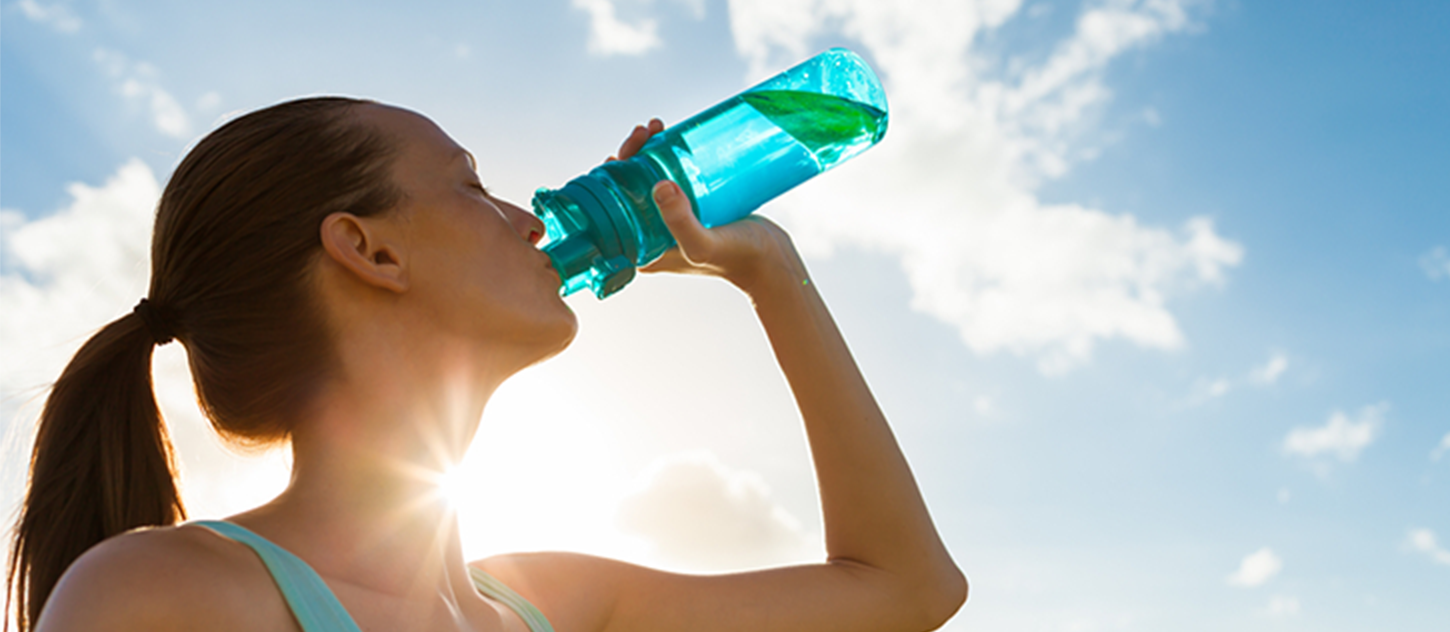HEALTHY LIVING
What Is Hydration on a Cellular Level and Why Is It Important?
What Is Hydration on a Cellular Level and Why Is It Important?
- Sub Heading
-
If the fluids you drink aren't hydrating your cells, they're not doing as much as you think.
- Duration
-
FEB. 26, 2024 4 MINUTE READ - Description
-
We all know how it feels not to be properly hydrated. From experiencing thirst to feeling sluggish to noticing that you don't need to urinate as frequently as usual, it's clear that being dehydrated can negatively affect how we feel and move through the day.
While drinking enough fluid is key to helping us feel our best, less of a focus is placed on the importance of cellular hydration, or having enough fluid in the cells to allow them to do their job. But what is hydration when it comes to cells, and why is hydration important on a cellular level?
What Is Cellular Hydration?
Your body is made of trillions of cells. These cells require fluid to maintain their structure and, in turn, to function properly. Taking in enough fluid is the first step to achieving cellular hydration. Your cell membranes are highly permeable to water (meaning they permit water to pass through them), and water follows osmotic gradients. Osmotic gradients are generated when the concentration of solutes, such as sodium, is higher on one side of the membrane than the other.
In the context of your cells, this means if you don't have enough water circulating through your body, water will be drawn from the inside of the cells due to increased osmotic pressure — causing those cells to shrink. When your body contains enough water, this lowers the concentration of solutes in your body fluids, which allows more water to move inside of the cells and restore their shape.
Maintaining cellular hydration can help protect your cells so they can carry out your body's key functions. What's more, chronic cellular dehydration is linked to unwanted health effects later in life, such as insulin resistance and hypertension, for example."
Jennifer Williams, MPH, a nutrition scientist at Abbott specializing in hydration.
How to Support Cellular Hydration
When you think of maintaining your hydration levels, ensuring the hydration of all cells in your body probably isn't top of mind. But supporting cellular hydration is an important factor in health and wellness.
Here are a few simple ways to support cellular hydration:
Drink Plenty of Fluids
Supplying your body with enough fluid is the most important step in maintaining cellular hydration as inadequate fluid intake can disrupt the concentration of your body fluid and lead to cellular shrinkage. Generally speaking, aim to drink enough to replace water losses and provide for regular excretion. Exactly how much water you should drink can vary widely based on a variety of factors, from your sex to your activity level to the climate.
If you lose excessive amounts of fluid due to sweating, vomiting, diarrhea or other causes, be sure to replenish your body appropriately.
Take in Adequate Electrolytes
The body aims to maintain a balance between the fluid inside the cells (intracellular) and the space outside the cells (extracellular). One of the ways it does this is by relying on electrolytes to regulate osmotic pressure, which helps the cells balance fluids across the cellular membrane.
Sodium, potassium and chloride are important electrolytes. Magnesium, calcium, phosphate and bicarbonates play important roles in cellular hydration, too. For generally healthy people, eating balanced meals that contain these nutrients may be adequate. However, if you're losing lots of fluids due to illness (e.g. diarrhea, vomiting or flu), exercise, travel or heat, try a rehydration drink that contains these electrolytes, such as Pedialyte®.
When you're focused on replenishing your body from fluid loss, be sure to include electrolytes at the same time. The right balance of salt (sodium chloride) and sugar (glucose) in your drink can help promote proper fluid balance and cellular hydration.
Eat Hydrating Foods Every Day
Sure, you should sip on water or other fluids consistently throughout the day. But don't forget that your body also relies on foods for hydration support. Watermelon, cucumbers and grapes are all made up of large amounts of water, and eating plenty of fruits and vegetables like these can help ensure you're getting enough.
Your cells help your body function properly, and they can't do their job well when they've lost their structural integrity. By replenishing fluid loss on a daily basis and taking in enough electrolytes, you can help your cells stay adequately hydrated — which is exactly what they need to be.
Article originally published February 28, 2023.
Coats, Hats and...Hydration? How to Stay Hydrated in Cold Climates
- Description
-
Summer is the season that usually gets people thinking about how to stay hydrated. Hot weather makes you sweat, which increases the need for fluids, and you may feel thirstier in general. But what about winter?
Hydration in cold weather can be easy to overlook, but the truth is that cold temperatures can also increase the body's demand for fluids. In this article, you'll learn about how cold weather can increase your potential for dehydration, the signs and symptoms of dehydration and tips for staying hydrated all year long.
- Reference Page Path
- /content/an/newsroom/us/en/healthy-living/diet-wellness/Coats-Hats-and-Hydration-How-to-Stay-Hydrated-in-Cold-Climates.html
3 Tips to Stay Hydrated Every Day
- Description
-
You know it's important to stay hydrated, but knowing is only half the battle. If only you could count on thirst to tell you what your body needs. Unfortunately, research shows that dehydration consistently outpaces physiological thirst. That means you tend to be mildly dehydrated long before you feel thirsty.
- Reference Page Path
- /content/an/newsroom/us/en/healthy-living/diet-wellness/3-Tips-to-Stay-Hydrated-Every-Day.html




Social Share